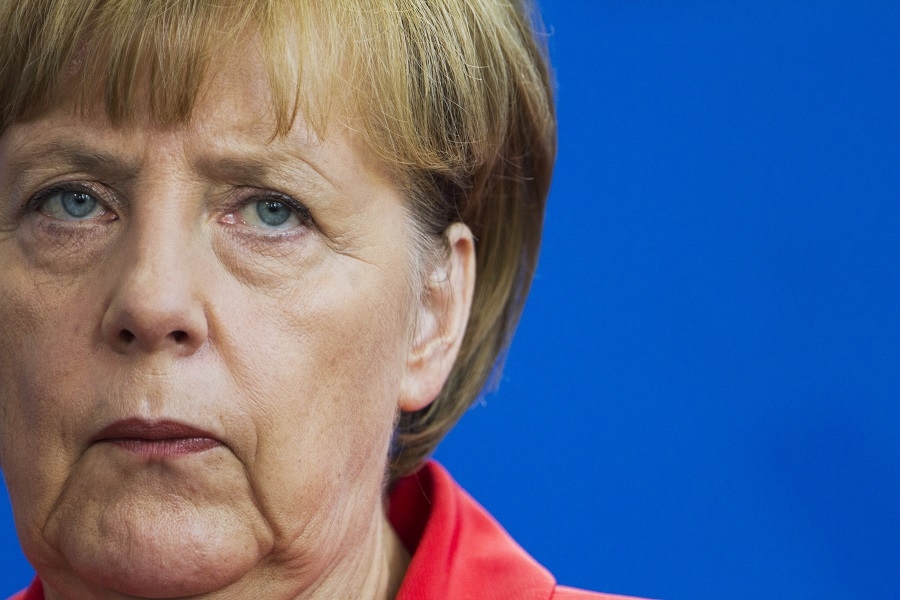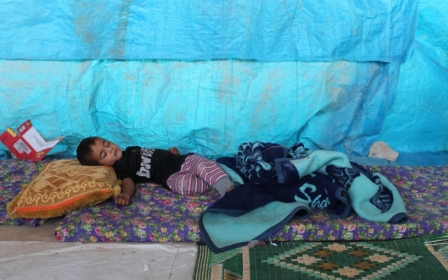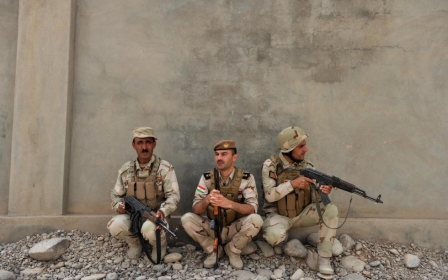German Arms to Kurds Reflects Major Shift in Middle East Policy

In a major shift in policy, German Chancellor, Angela Merkel announced on 1 September that Germany would supply Iraq’s Kurdish forces, known as the Peshmerga - or “those who seek death” - with $92 million in weapons, including rifles, machine guns, grenades, anti-tank systems, and even armoured vehicles. This decision is significant and may help tip the balance of power against the Islamic State (IS), which now controls significant segments of Iraqi and Syrian territory, and has achieved stunning military victories in the vicinity of the autonomous Kurdish region in northern Iraq.
As IS has expanded its control of northern Iraq, foreign ministers of the European Union (EU) met in mid-August to discuss a response to the humanitarian crisis unfolding. According to a statement issued at the time, EU leaders welcomed the Obama administration’s decision to launch airstrikes in support of a Kurdish offensive against IS militants and encouraged Iraqi leadership - both Kurdish and Arab - in their fight against IS. More importantly, the EU recognized “the decision by individual member states to respond positively to the call by the Kurdish regional authorities to provide urgently needed military materiel.”
Since then, France, Italy, the Czech Republic and Great Britain have all offered Iraq assistance in the fight against IS. So why then, is the German decision so important?
First, historically, Germany has refused to supply weapons to countries engaged in conflict, but as IS has seized control of more territory, and has threatened minorities, German leadership reconsidered this policy. As Merkel pointed out, “It is our humanitarian responsibility and in the interests of our security to help those suffering and to stop IS.”
This is a significant move with regard to domestic German politics, says Carsten Nickel, senior vice president at Teneo Intelligence and an expert on German politics. “This the first time that Germans have decided to supply one party in an on-going conflict with weaponry. This might be a minor step by American, French or British standards, but its importance should not be underestimated in its medium-term repercussions for Germany's role in global security issues. Based on yesterday's decision, Berlin has become more involved than ever in a specific, violent conflict in the Middle East. This might make it more difficult to sustain Berlin's traditional hands-off approach going forward.”
Secondly, the high numbers of foreigners, particularly from Europe, heading to Syria and northern Iraq to join the IS, increasingly poses a security threat to Germany and the EU as a whole. Indeed, there is genuine concern that IS, like al-Qaida before it, will infiltrate radicalized, war-hardened Muslims to their home countries, in order to engage in acts of domestic terrorism, not unlike the attacks in Madrid in 2004 and London in 2005. As the German statement indicated, “The lives of millions of people, the stability of Iraq and the whole region and... due to the high number of foreign fighters, our security in Germany and Europe are being threatened.”
A final reason is that IS is increasingly posing threats to Turkey, a close German and NATO ally. While the Turks are more than capable of defending themselves and IS has made a point of not directly engaging Turkey’s military forces, the establishment of an Islamic caliphate on Turkey’s southern border, and the ease at which foreigners can infiltrate across its long border with Syria poses a problem. Worse, from Turkey, a jihadist with a foreign passport can easily fly to anywhere in Europe or the world.
Taken together, these factors have convinced the German leadership to provide the Kurds with enough weaponry to equip a brigade of 4,000 troops. These weapons will include 30 Milan anti-tank rocket launchers with 500 rockets; 240 armour-piercing bazookas; 8,000 G3 rifles, with two million rounds; 8,000 G36 rifles, including four million rounds; 40 MG3 machine guns; and 8,000 pistols.
Of these weapons, the most important are the anti-tank rockets and bazookas. Historically, Western governments have been incredibly reluctant to provide the Kurds with offensive weaponry out of fear that the Kurdish government would use them to take offensive action against Baghdad and then declare independence.
These fears are not fantasy. Since the early 1960s, the Kurds have been fighting to achieve autonomy from the Iraqi government, seeking military support from nearly any quarter - Iran, Israel, the United States and the Soviet Union. In every instance, they pressed for offensive weapons, only to be given a limited amount of defensive weapons, such as rifles, landmines and anti-tank missiles.
Turkey - a key member of NATO - has no interest in seeing the formation of an independent Kurdistan; For generations, the Turkish government refused to accept the fact that it even had a Kurdish population, referring to them instead as “mountain Turks.” Ankara never considered the Kurds an ethnic minority. It banned the use of the language, wearing Kurdish clothing, and engaged in a ruthless counter-insurgency campaign after the Kurds rebelled, leading to the slaughter of more than 37,000 people since the mid-1980s.
Turkey’s Kurdish population lives in the southeast of the country, bordering Iraq’s autonomous Kurdish region. Given this, Ankara has long-feared that the formation of an independent Kurdistan would lead to the loss of its own Kurdish territories.
Because Western leaders share these concerns, they have been incredibly reluctant to provide the Kurdish Regional Government (KRG) with offensive weapons. However, the rise of IS has changed everything. IS presents a clear and present danger, not just to the KRG and Turkey, but to the West as a whole, thereby lifting any opposition Ankara may have had about the introduction of a vast quantity of weapons.
Ultimately, Germany’s decision to provide the Kurds with weapons shows that the IS threat has dramatically altered the strategic framework for the region. In particular, it is now clear that Turkey is no longer opposed to the provision of weapons to the Iraqi Kurds, because Ankara now believes that the IS threat far outweighs the challenges of an independent Kurdistan.
- Bryan R Gibson recently completed a PhD in International History at the London School of Economics and is the author of Covert Relationship: American Foreign Policy, Intelligence and the Iran-Iraq War, 1980-1988 (Praeger, 2010).
The views expressed in this article belong to the author and do not necessarily reflect the editorial policy of Middle East Eye.
Photo: German Chancellor Angela Merkel addresses a joint press conference with the President of Myanmar in Berlin on 3 September (AFP)
Middle East Eye propose une couverture et une analyse indépendantes et incomparables du Moyen-Orient, de l’Afrique du Nord et d’autres régions du monde. Pour en savoir plus sur la reprise de ce contenu et les frais qui s’appliquent, veuillez remplir ce formulaire [en anglais]. Pour en savoir plus sur MEE, cliquez ici [en anglais].





